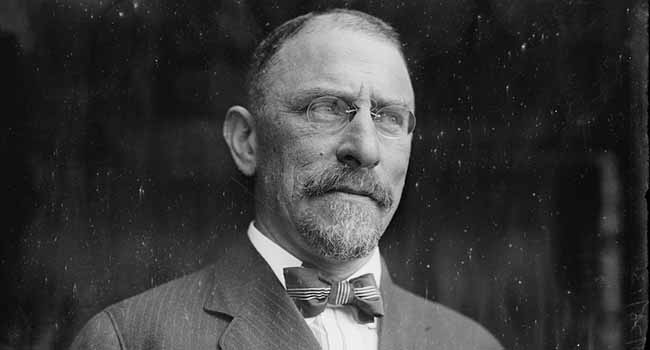 As I examined the history of human rights in America, one name kept coming up: Henry Morgenthau. It turns out I was actually learning about three men: Henry Morgenthau Sr., Henry Morgenthau Jr. and Henry Morgenthau III, father, son and grandson.
As I examined the history of human rights in America, one name kept coming up: Henry Morgenthau. It turns out I was actually learning about three men: Henry Morgenthau Sr., Henry Morgenthau Jr. and Henry Morgenthau III, father, son and grandson.
All of them spoke with courage and together advanced the cause of human rights for nearly a century.
Morgenthau Sr. was a born in Germany and immigrated to the United States with his family when he was a child. He became a lawyer and established himself as a real estate investor in New York. Morgenthau contributed generously to Democrat Woodrow Wilson’s presidential campaign. Wilson, once elected, named him ambassador to the Ottoman Empire, a position he held from 1913 to 1916.
When the First World War began in 1914, the Ottomans were allied with Germany and the Austro-Hungarian Empire. British and French citizens had to leave the region, but the United States was technically neutral until it joined the war in 1917. Morgenthau thus witnessed unimaginable crimes against humanity as the Ottomans, under the cover of war, began the slaughter of 1.5 million Armenians.
Morgenthau was anything but a silent witness. Although his country chose not to intervene, he helped establish the Committee on Armenian Atrocities (later called the Near East Relief). He also made sure the New York Times continued to report on the issue.
Even today, Morgenthau’s testimonials provide proof of this genocide, although modern Turkey continues to deny the severity of Ottoman crimes against humanity.
Morgenthau’s son was also a prominent Democrat. As secretary of the treasury under President Franklin D. Roosevelt, he was one of the primary architects of the New Deal. That policy was key in helping many Americans navigate through the Great Depression.
What’s less well known is that in a time when anti-Semitism was socially acceptable, Morgenthau, who was Jewish, spoke out courageously as a member of Roosevelt’s cabinet.
American industry, we must remember, had no objection to funding Adolf Hitler’s reconstruction and remilitarization of Germany.
Before the war, Morgenthau lobbied for safe refuge for European Jews but was largely ignored. Even when Allied command became aware of the Final Solution, likely as early as 1942, they made the decision to do nothing about the slaughter of millions of Jewish people.
Raphael Lemkin: the man who coined the word genocide by Gerry Chidiac
Morgenthau, like his father, refused to remain quiet. Through his efforts, the U.S. War Refugee Board was finally established in early 1944. As a result, it’s estimated that up to 200,000 Jewish refugees were saved.
Henry Morgenthau III continued the family tradition of speaking for the voiceless. He was a television producer, working for the prominent public channel WGBH in Boston. Kramer Morgenthau said his father was inspired by “the whole concept of using television to educate and also tell stories of marginalized people in society.”
As early as 1963, people like Martin Luther King Jr., Malcolm X and James Baldwin were interviewed on Morgenthau III’s programs. He also took one of the first American television crews to South Africa to report on life under Apartheid.
In later interviews, Morgenthau III discussed the impact conversations with his grandfather had on him. And he spoke about the need to recognize the Armenian genocide. He was also quite open about his views during the Cold War, when no Western country would question Turkey’s claim of innocence due to its strategic geographic importance.
Not all people entrusted with positions of influence use that privilege to speak for the voiceless. Fortunately for us all, there are those who do.
The courage of three generations of Morgenthaus gives testimony to the words of Armenian American writer Vera Nazarian: “The world is shaped by two things – stories told and the memories they leave behind.”
Troy Media columnist Gerry Chidiac is an award-winning high school teacher specializing in languages, genocide studies and work with at-risk students.
The views, opinions and positions expressed by columnists and contributors are the author’s alone. They do not inherently or expressly reflect the views, opinions and/or positions of our publication.

